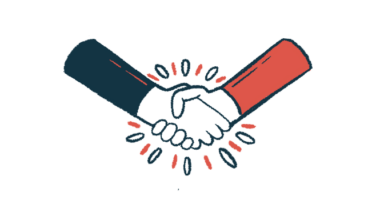Catalent to Produce BrainStorm’s NurOwn Cell Therapy for ALS

Catalent Biologics has agreed to manufacture NurOwn, the cell-based therapy by BrainStorm Cell Therapeutics being evaluated in a soon-to-conclude pivotal trial as a possible treatment of amyotrophic lateral sclerosis (ALS).
With this agreement, Catalent will produce NurOwn under current Good Manufacturing Practices — standards set to ensure that batches of a medicine are produced with consistent high quality — at its new 32,000-square-foot cell therapy manufacturing facility in Houston.
“We are proud to have a partner in Catalent whose excellence in manufacturing quality therapies will support commercial supply of NurOwn,” Chaim Lebovits, BrainStorm’s CEO, said in a press release.
With NurOwn, a patient’s mesenchymal stem cells are collected from the bone marrow and treated in the lab to produce proteins called neurotrophic factors (NTFs), compounds that promote nervous tissue growth and survival. (Mesenchymal stem cells, or MSCs, are stem cells that can differentiate into a variety of other cell types.)
The modified cells — called MSC-NTF cells — are then injected into the patient’s spinal cord, where their NTFs are expected to promote the growth and survival of nerve cells, which are damaged over the course of ALS.
Using a patient’s own cells as a therapy minimizes the risk of an immune reaction, as might occur with cells from a donor.
The U.S. Food and Drug Administration has given NurOwn both fast track and orphan drug designations to support and speed its development for ALS. The medicine also received orphan drug designation from the European Medicines Agency.
“We know that ALS patients are in urgent need of a new treatment option. If NurOwn is successful in the current clinical trials, this agreement will be integral to ensuring rapid access for patients,” Lebovits added.
NurOwn showed an ability to slow progression in people with fast-progressing disease in a Phase 2 trial (NCT02017912). This led Brainstorm to open a Phase 3 trial (NCT03280056) to confirm those findings in a larger group of ALS patients.
The trial, taking place at six sites in the U.S., enrolled 200 patients and randomly assigned them to either NurOwn or a placebo, given in three intrathecal (into the spinal cord) injections at two-month intervals.
Researchers are evaluating NurOwn’s effectiveness using the revised amyotrophic lateral sclerosis functional rating scale (ALSFRS-R), which assesses such daily life abilities as swallowing, speaking, dressing and washing oneself, climbing stairs, and turning over in bed.
Its primary goal is to determine whether NurOwn outperforms a placebo at reducing the rate of decline in ALSFRS-R scores over six months. A change of 1.25 points or more in ALSFRS-R scores each month, compared to scores recorded prior to treatment, defines a responder.
Other trial goals include safety, the number of patients whose disease has not progressed, total ALSFRS-R decline, and overall survival. Samples of blood and cerebrospinal fluid will also be collected to evaluate biomarkers, like neurotrophic factors and immune molecules, in response to the treatment.
BrainStorm expects to deliver top-line results this year; the study is set to fully conclude in December.
Should results be positive and NurOwn be approved for clinical use, BrainStorm and Catalent will consider extending their partnership to allow for commercial manufacturing of NurOwn at the Houston facility.






